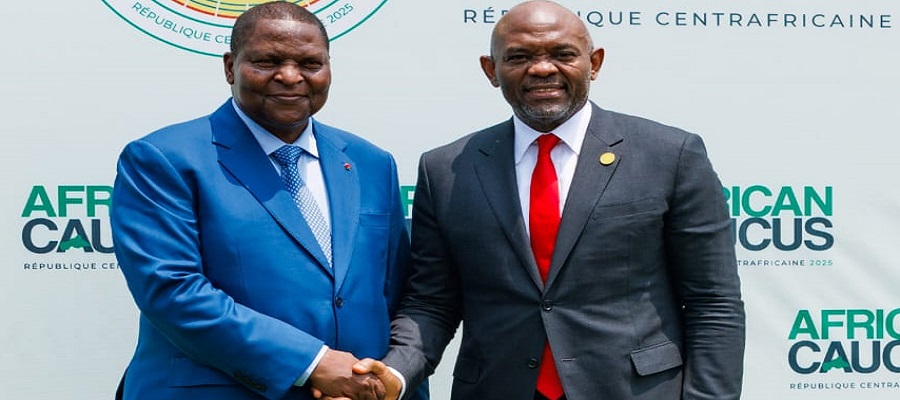General News
The World Bank Urges Buhari to Probe NNPC, Others

The World Bank has thrown its weight behind Muhammadu Buhari, president-elect, to probe the Nigerian National Petroleum Corporation (NNPC) over allegations of missing funds and insisted that such move would check impunity and build public institutions in the future.
The bank also commended President Goodluck Jonathan for exhibiting political maturity after the March 28 presidential election that would end the tenure of his administration on May 29.
Mr. Francisco Ferreira, chief economist for Africa, the World Bank stated this while speaking in a video conference from Washington to journalists from across Africa on the release of the bank’s analysis of issues shaping the continent entitled, ‘Africa’s Pulse’.
He said, “One norm that has to change is the norm of impunity. I am from Brazil myself. So I am also used to a country where people could be corrupt and escape justice. That keeps the people to keep doing it.
“So, the current stand of the government-elect to look into what happened in the past hopefully will have consequences for the future. And those consequences will be that institutions will be stronger; norms will be cleaner and people will not have to steal millions of dollars from the Nigerian National Petroleum Corporation.
“People have alleged in the past that there had been major corruption scandals there. If that stops, then that will have very high returns in terms of the money staying around to be spent on education, health, roads and power that the poor people across the country need.
“So, my sense is that it will be good to promote cleanliness in politics.”
Answering question on some other African countries that have elections between 2015 and 2017, Ferreira said there was no need to be afraid, adding that the fear of elections would drive away investments from the region.
He said the example that had been shown by Jonathan and Nigeria in the just-concluded general election showed that the continent could get it right in terms of transition to new governments.
Ferreira praised Jonathan for political maturity that he exhibited during the elections, adding that if Nigeria could get it right; other countries in the region should also be able to get it right.
Answering a question from a South African journalist on the possibility of the country overtaking Nigeria as the largest economy on the continent given the fall of Nigeria’s main export, crude oil, Ferreira said it did not look plausible.
Also answering a question from an Angolan journalist on who between Nigeria and his country was managing the fall in oil prices better, the World Bank expert said both countries were doing well in putting measures in place to check the decline.
He praised both countries for allowing their currencies to float according to market forces rather than living in denial of the crisis occasioned by the decline in crude oil exports.
Ferreira, however, added that Nigeria stood a better chance to recover faster from the decline because the structure of the country’s economy was more diversified than that of Angola.
General News
Bank Staff Arraigned for Allegedly Defrauding Customer of N423m

Abiodun Maccarthy, former bank employee, has been arraigned before Justice Mojisola Dada of the Special Offences Court sitting in Ikeja, Lagos, over an alleged ₦423 million fraud involving a customer’s fixed deposit investment.

Maccarthy was brought before the court by the Economic and Financial Crimes Commission (EFCC) on Thursday, July 31, 2025.
He faces a four-count charge bordering on stealing and forgery, offences said to be in violation of Sections 278 and 361(1) of the Criminal Law of Lagos State, 2011.
According to a statement by Dele Oyewale, spokesperson, EFCC, the defendant allegedly converted ₦423 million out of a ₦650 million deposit made in 2018 by a client, Great Endurance Bureau De Change, for a fixed deposit investment.
The funds were reportedly diverted for his personal use while he was still in the bank’s employ.
To conceal the alleged fraud, Maccarthy was said to have forged a fixed deposit investment certificate bearing slip number 332540, which he issued to the client as proof of the transaction.
One of the counts reads: “Abiodun Maccarthy, sometime in 2018 at Lagos, within the jurisdiction of this Honourable Court, dishonestly converted to your own use the sum of ₦423,000,000.00 (Four Hundred and Twenty-Three Million Naira), money which forms part of ₦650,000,000.00 (Six Hundred and Fifty Million Naira) paid to you by Great Endurance Bureau De Change for fixed deposit investment while you were in the bank’s employ.”
Another count adds that he “with intent to defraud, forged a fixed deposit investment certificate with slip no. 332540 and issued same to Great Endurance Bureau De Change as evidence of investment.”
Maccarthy pleaded not guilty to all the charges.
Following his plea, B. M. Isah, prosecution counsel requested a trial date and urged the court to remand the defendant in a Correctional Centre.
Justice Dada granted the request and adjourned the case until October 22, 2025, while ordering that Maccarthy be remanded in custody.
General News
Tony Elumelu Lists 3 Things Africa must do to Bridge Infrastructure Gap

Tony Elumelu, group chairman of Heirs Holdings and UBA, has listed strengthening fiscal capacity, driving operational efficiency, and unlocking innovative financing as three key things Africa must do to truly rise and bridge its infrastructure gap.

L-r: Faustin-Archange Touadéra, president, Central African Republic; and Mr. Tony Elumelu, group chair, UBA and Heirs Holdings and Founder, Tony Elumelu Foundation.
Elumelu, also founder of The Tony Elumelu Foundation, urged Africa to enable the private sector to co-lead infrastructure development.
He stated all these in his keynote address at the African Caucus meeting held in Bangui, Central African Republic.
The meeting was themed, ‘Resilient Infrastructure, Human Capital, and Green Assets’.
Elumelu highlighted that across Africa, there is a deep and persistent infrastructure divide.
“From roads to ports, power to internet connectivity, we lag behind. We cannot achieve prosperity without the foundations of modern development. Without addressing these gaps, we cannot unlock the growth and prosperity our people deserve,” he said.
He emphasised that energy access is the most critical enabler or barrier to Africa’s progress, pointing out that up to 70% of Africans still lack access to electricity.
“My home country, Nigeria, generates less than 7,000 megawatts for over 200 million people.
“If we are to industrialise, create jobs, and participate meaningfully in the global AI revolution, we must invest aggressively in energy from renewables to cleaner gas-based solutions. Imagine what Nigeria’s economy could become with 100,000 megawatts of reliable, affordable energy. That is the scale of transformation we need”, he said.
Elumelu called for a stronger role for the private sector in infrastructure delivery, citing the work of Transcorp and Heirs Energies as an example of how private capital can address public challenges.
“We are generating power, exporting it through the West African Power Pool, and using gas from our oil operations to power our plants. This is Africapitalism in action,” he said.
Africapitalism, he explained, is the belief that Africa’s private sector must lead in driving economic transformation through long-term investments that generate both economic and social returns.
But for Africapitalism to succeed, he said, strong public-private partnerships are essential.
“Governments must create the right environment. The private sector must bring capital and innovation. And our development partners must support Africa’s realities – including recognising gas as a viable transition fuel on our path to clean energy”, he added.
On Africa’s human capital, Elumelu underscored that no resource is more valuable than the continent’s people especially its youth.
“Africa is the youngest continent on earth, with over 60% of our population under 35. This presents both our greatest asset or our greatest risk,” he said. “If empowered, our youth can transform Africa. If neglected, they can become a source of instability.”
Through the Tony Elumelu Foundation, he said, over 24,000 young entrepreneurs across all 54 African countries have been empowered with non-refundable seed capital of USD5,000 each.
The foundation has also trained 1.5 million youths and catalysed 1.2 million jobs. “These entrepreneurs are creating jobs, building businesses, and changing lives,” he noted.
To conclude his address, Elumelu delivered three powerful messages.
“Africa’s development is our responsibility. No one else will do it for us. Africa’s future is in our hands. No one will build this continent for us. We must lead,” he said. “Power is everything. No industrial revolution can happen without electricity. We must prioritise energy. Without power, there can be no progress.”
And finally, “We must invest in our youth. They are not just our future, they are our present.”
He commended the growing focus of global institutions on Africa, referencing his role on the IMF Advisory Council on Entrepreneurship and Growth and expressing optimism about the renewed emphasis on job creation as a path to sustainable development.
He also praised the World Bank’s ‘Mission 300’ initiative led by President Ajay Banga, which aims to connect 300 million Africans to electricity
“Africa is ready,” Elumelu declared. “Let’s seize this moment and build the prosperous, empowered continent our people deserve”.
General News
Babcock VC Unveils New Horizons’ N1.5Bn ICT Centre

Prof. Ademola Tayo, the Vice Chancellor, Babcock University, has unveiled a 2,000-seater capacity ICT Centre, built and equipped with modern ICT facilities by New Horizons, a foremost ICT Training Institute.

The three-storey building has six classrooms in each floor that can accommodate a minimum of 50 students in a class, including seat-outs, offices and halls that are fully equipped with flat-screen computers and modern ICT facilities that cut across Artificial Intelligence (AI), Robotics, Internet of Things (IoTs), among others.
Speaking at the unveiling, which marks part of the university’s 23rd convocation activities, the Vice Chancellor thanked New Horizons for the donation of the facility to the university community, which he said, would boost learning of new ICT skills, including AI.
“The university has been in collaboration with New Horizons for the training of our students in ICT certification courses. The reason why our students are doing very well in their studies is because of the digital literacy skills that New Horizon is offering our students. Every student from level-one takes ICT certification courses offered by New Horizon and that has helped the students to excel in their studies,” the Vice Chancellor said.
Mr. Tim Akano, CEO, New Horizons Nigeria, said: “We are not unveiling the building alone. We are also unveiling the resources inside the building. We brought in customized all-in-one systems, including some equipment for Robotics and AI. We also made provision for a garden and we are dedicating the garden to the five principal officers of the university. Each of them will plant a symbolic lemon tree that signifies health, prosperity, fidelity, cleansing, longevity, protection and love.”

 Telecom3 days ago
Telecom3 days agoMTN Mulls AI Tech to Protect Infrastructure as Cable Cuts Hit 13,000 in 18 Months

 E-Financial2 days ago
E-Financial2 days agoEcobank Sends Important Notice for Customers

 E-Financial3 days ago
E-Financial3 days agoBanks Reopen Naira Card Payments for International Tuition Fees

 News3 days ago
News3 days agoYahoo Mail Halts Free Storage Service, Caps at 20GB

 E-Financial3 days ago
E-Financial3 days agoSafaricom, PayPal Collaborate to Link Mobile Money with Online Payments

 Broadcasting3 days ago
Broadcasting3 days agoHow AI Agents Will Revolutionise Industries, Boost Productivity, and Cut Costs

 News3 days ago
News3 days agoCAC to Delist 100,000 Dormant Firms After 90-Day Compliance Window

 E-Business3 days ago
E-Business3 days agoAttackers Target Employees with Fake HR Updates



























